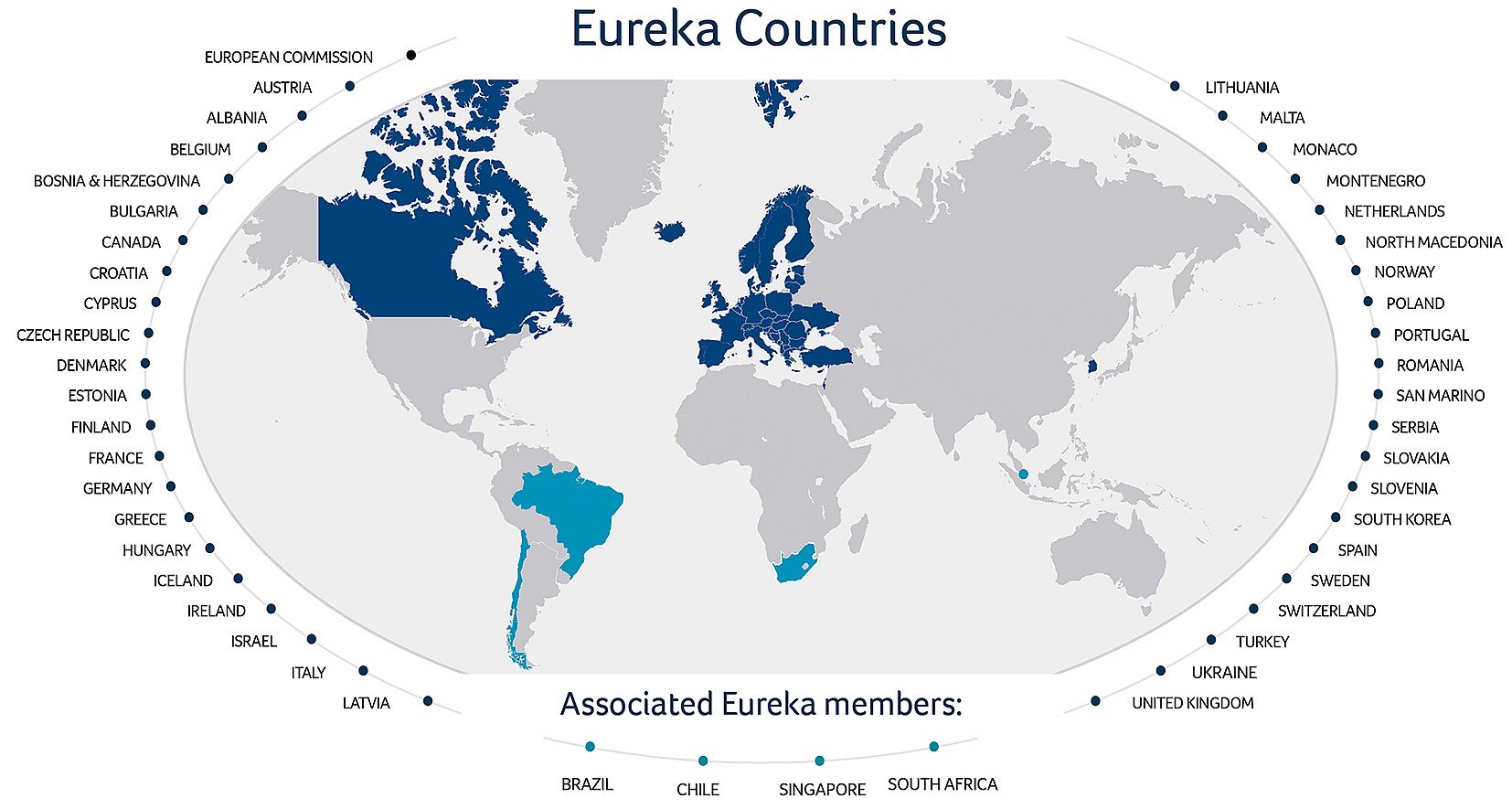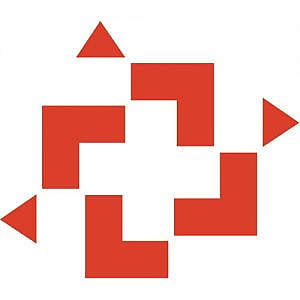- Get directions
- Leave a review
- Claim listing
- Bookmark
- Share
- Report
- prev
- next
- Monday, May 5, 2025 @ 11:00 am
In the dynamic landscape of biotechnology, Switzerland stands out not only for the power of its innovation but also for its collaborative spirit. Despite the country accounting for just 0.5% of the world’s GDP and 0.1% of its population, Switzerland’s life sciences ecosystem punches well above its weight. Swiss biotech thrives by forging alliances that harmonize efforts, amplify outcomes, and strengthen its global relevance.

Michael Altorfer
Swiss Biotech Association | CEO

Marta Gehring
Swiss Biotech Association | Special projects
The power of alliances
Switzerland’s small geographic area and location in the heart of Europe is an advantage in that it makes an international outlook obligatory. For Switzerland, adopting a global perspective is not just beneficial – it is essential.
Players in the Swiss biotech ecosystem recognize that they cannot afford to ‘go it alone’ and that collaboration is key to achieving greater impact. By aligning practices, harmonizing processes, and sharing expertise or resources, alliances accelerate progress. They may help to establish international standards, facilitate access to larger markets, broaden distribution networks, or share best practices with wider groups of researchers and collaborators. Such alliances foster synergy, boosting both effectiveness and productivity to the benefit of all the parties involved, and ultimately enable innovative products and business solutions to be available to patients and global consumers more rapidly and on a global scale.
Part of the success of Swiss academic institutions, public-private partnerships, and biotech companies can be directly attributed to their proactive engagement with international partners to build bilateral and multi-lateral alliances. Public agencies can also play a crucial role by fostering alliances that help accelerate key processes, harmonize and simplify international regulations, and enable them to shape and develop international best practices.
Take, for example, the Access Consortium, a regulatory alliance forged by Switzerland, Australia, Canada, the UK, and Singapore to enhance regulatory alignment, harmonizing the approval process, accelerating drug and medical device approvals, and improving patient access to innovative treatments across these countries (see Swissmedic article, Page 30).
While collaboration between regulatory bodies helps to simplify and accelerate the approval process and thereby support a more efficient and predictable drug development, the partners of the international grant network Eureka/Globalstars focus on fostering international research collaboration and providing an increasingly international grant network of non-dilutive funds. What started as a European initiative has developed into a worldwide alliance, supported by 47 countries plus the European Commission.
Collaboration across the value chain
The formation of alliances is a cornerstone of Swiss biotech success across the entire value chain. Switzerland has the resources to be a strong partner in all aspects of life science:
- research collaborations
- public/private partnerships
- clinical trials
- manufacturing & quality control
- regulatory approval
- distribution and storage
- education and training (e.g. of health professionals)
- establishing financial funding models, including innovative healthcare insurance systems
Switzerland’s focus on quality and global applicability ensures that these alliances have a long-term perspective, and are built on trust and reliability. Bilateral initiatives can often expand into multilateral alliances, provided that they offer collective benefit and meet the joint objectives of all alliance partnes. From academic institutions and grant networks to hospital chains and manufacturing hubs, partnerships drive innovation and operational excellence. Switzerland’s public-private partnerships exemplify successful collaboration, bridging academic excellence with research pragmatism. Institutions like the Wyss Center and the Institute of Molecular and Clinical Ophthalmology Basel (IOB) have fostered groundbreaking advances while uniting diverse players under shared goals.
For instance, the Wyss Center is part of a five-year, USD 36 million international consortium funded by the Defense Advanced Research Projects Agency (DARPA) under the Bridging the Gap Plus Program. This initiative brings together universities, biomedical startups, and nonprofit organizations to develop therapies for spinal cord injuries, improving long-term recovery.
Meanwhile, IOB maintains strong international collaborations with leading institutions such as the Chan Zuckerberg Initiative, Columbia University, and the Danish Research Institute of Translational Neuroscience (DANDRITE), reinforcing Switzerland’s role as a hub for global scientific partnerships.
Lonza’s alliances with preferred subcontractors is an example of how collaborations help to establish robust and resilient supply chains. Hospital chains, such as Hirslanden Group, underscore the integrative approach, blending clinical expertise with membership of global private hospital groups to deliver superior healthcare outcomes.
By fostering a culture of innovation and shared international knowledge, Swiss players consistently push the boundaries of what alliances can achieve.
Global relevance through collaboration
In an era when isolationist policies and “me first” approaches have gained traction, Switzerland’s collaborative model offers a compelling counterproposal. International alignment is a hallmark of the Swiss approach, enabling the country to increase its relevance, attractiveness, and know-how. By working together, Swiss institutions amplify their influence while maintaining a focus on mutual benefits.
Such international alliances allow partners to learn from each other, to joinly overcome hurdles, and to shape a solution, product or process that is more effective, efficient, and more broadly applicable than the contributions of each individual alliance partner. As much as international collaboration plays a key role in research and development projects, international alliances enable all partners to shape and develop solutions that improve the framework conditions, offer more and improved business opportunities, and expand personal networks.
The Swiss commitment to quality plays a pivotal role in this process. Whether building supply chains or forging international partnerships, Swiss partners seek to establish alliances that are robust and reliable. They create value not by imposing political pressure but by fostering innovation and shared success. And in the area of life sciences or industrial biotech, they will typically aspire to be applicable globally or to have a strong impact well beyond the Swiss borders.
An attractive partner
Switzerland’s collaborative approach makes it an ideal partner for international stakeholders. Its alliances are not about highlighting successes or excluding non-paricipating partners but about creating meaningful impact. This humble yet effective approach enhances Switzerland’s reputation as a trusted and attractive partner in the global life sciences arena.
Four out of five biotech patents filed in Switzerland are established in international collaboration. 70% of the Swiss R&D talent pool, in academic institutions and industrial partners alike, are non-Swiss citizens. As Switzerland offers a very attractive, stable and globally connected R&D hub, many international biotech leaders are attracted to work in Switzerland or with Swiss partners.
The Botnar Institute of Immune Engineering was recently founded in Basel and is a good example of an attractive new partner that will seek to establish international collaborations and alliances to engage in translational research collaborations with industrial and academic partners around the world. Funding by the Botnar foundation of over USD 1 billion, allows a long-term perspective. It mean that the the institute can engage with international partners to attract additional funding and top talent, and can shape a project portfolio that has the potential to develop solutions to meet medical needs around the globe.
An open economy
Each year, the Heritage Foundation, a conservative think tank in Washington, D.C., publishes an index measuring economic freedom worldwide. Switzerland consistently ranks among the top three, and was placed second in 2024 alongside Singapore and Ireland. The index evaluates 12 factors across four categories: Rule of Law, Government Size (including tax burden and fiscal health), Regulatory Efficiency, and Open Markets (including trade, investment, and financial freedom). This high ranking reflects Switzerland’s obligatory international outlook and commitment to fostering impactful global partnerships.
In a time when many countries seek to “reshore” manufacturing, establish their own supply chains and invest tremendous amounts of tax payer funding in “me first” industrial policies, Switzerland fosters bilateral and multilateral collaborations and alliances. Rather than expanding the role of the government or engaging directly in helping to fund potentially high risk private organizations, Switzerland trusts that industry leaders, entrepreneurs and startup management teams are best positioned to understand which trends, market needs, and global challenges offer the best business opportunities and what level of risk is acceptable. So rather than investing in the protection or active expansion of selected industries, Switzerland continues to invest in the formation of new talent and provides funding for non-dilutive grants to publicprivate partnerships.
Summary
In conclusion, Switzerland’s biotech ecosystem demonstrates how a small country can achieve significant global impact through collaboration. By building alliances that prioritize quality, reliability, and mutual benefit, Switzerland not only strengthens its position but also sets a powerful example for the international community. Such engagements are not limited to the development of biopharma products. Industrial biotech applications allow to develop valuable solutions for the bioeconomy (see scienceindustries article, Page 38), and alliances between zoos help protect biodiversity (see guest editorial, Page 5). In a world increasingly divided, the Swiss model reminds us of the unparalleled potential of working together.

